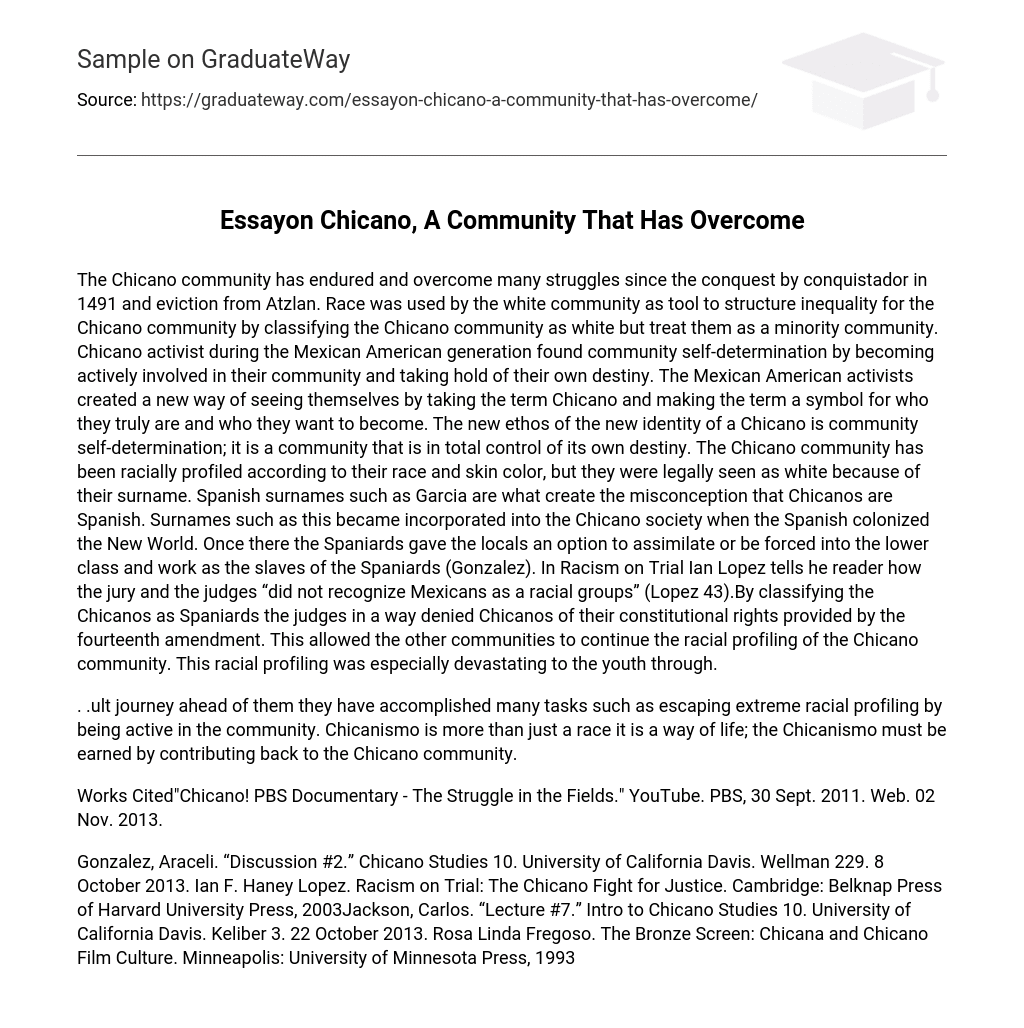Since the conquistador’s conquest in 1491 and expulsion from Atzlan, the Chicano community has faced numerous struggles. The white community used race to create an unequal hierarchy, classifying Chicanos as white but treating them as a minority. However, during the Mexican American generation, Chicano activists found empowerment by actively participating in their community and taking control of their own destiny. They redefined their identity by embracing the term Chicano, which represents who they truly are and aspire to be. This new ethos revolves around community self-determination, giving complete control over their future. Despite being racially profiled based on their race and skin color, Chicanos were legally considered white due to their surnames like Garcia. These surnames became integrated into Chicano society when the Spanish colonized the New World, offering locals assimilation or relegation to a lower class forced into slavery under Spanish rule (Gonzalez). Ian Lopez discusses in his book “Racism on Trial” how juries and judges failed to recognize Mexicans as a distinct racial group (Lopez 43), resulting in denying Chicanos’ constitutional rights guaranteed by the fourteenth amendment.Thus, the Chicano community suffered from persistent racial profiling by other communities. This had a particularly detrimental effect on young individuals.
Despite facing extreme racial profiling, the Chicanismo community has achieved numerous milestones throughout their journey. Their active participation in the community has helped them overcome these challenges. Chicanismo goes beyond mere race, as it encompasses a way of life. To truly embrace Chicanismo, individuals must give back to their Chicano community.
“Works Cited”Chicano! PBS Documentary – The Struggle in the Fields.” YouTube. PBS, 30 Sept. 2011. Web. 02 Nov. 2013.
Gonzalez, Araceli. “Discussion #2.” Chicano Studies 10. University of California Davis. Wellman 229. 8 October 2013. Ian F. Haney Lopez. Racism on Trial: The Chicano Fight for Justice. Cambridge: Belknap Press of Harvard University Press, 2003.
Jackson, Carlos. “Lecture #7.” Intro to Chicano Studies 10. University of California Davis. Keliber 3. 22 October 2013. Rosa Linda Fregoso. The Bronze Screen: Chicana and Chicano Film Culture. Minneapolis: University of Minnesota Press, 1993.





